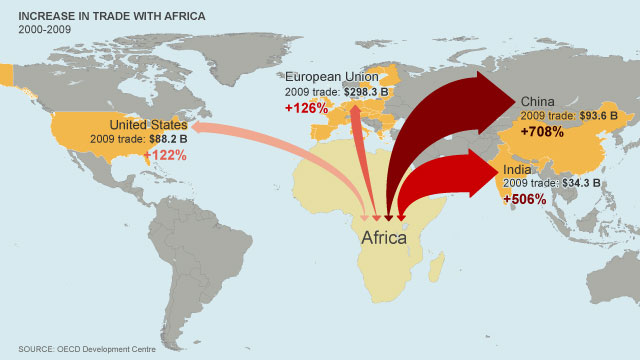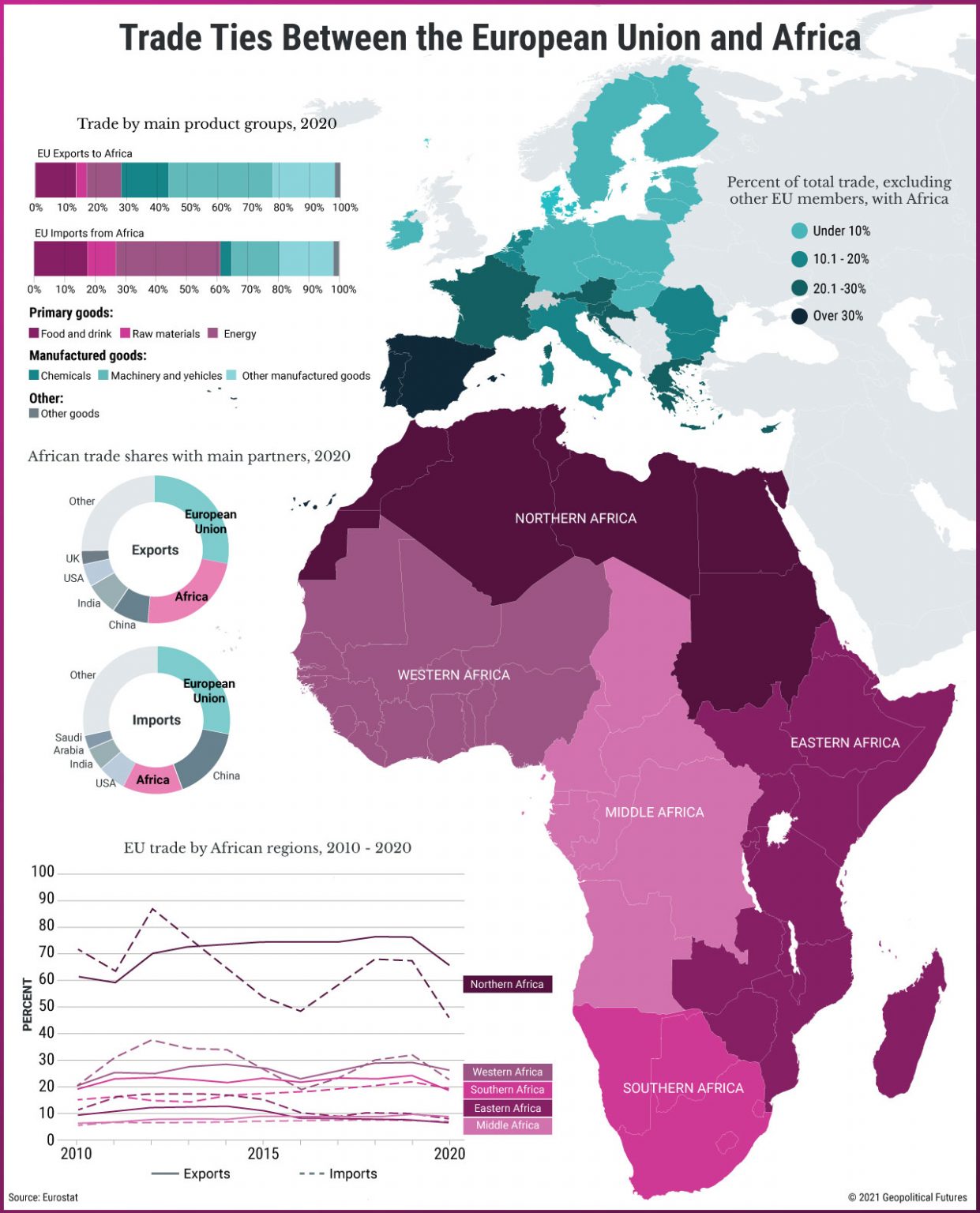From the bustling marketplaces of Cairo to the vibrant ports of Lagos, the African continent is a tapestry of vibrant trade activity. Africa’s diverse economies are intricately connected, a testament to its historical heritage and rich cultural exchange. In this article, we delve into the depths of Africa’s trade dynamics, exploring its key exports, import patterns, and the factors that shape its commercial landscape.

Image: edition.cnn.com
**Africa’s Role in Global Trade: A Historical Perspective**
Africa’s trading history dates back centuries, with the continent serving as a hub for the exchange of goods between Europe, Asia, and the Americas. In the pre-colonial era, Africa’s natural resources, such as gold, ivory, and slaves, fueled the global economy. After independence, African nations grappled with the challenges of economic development, while trade continued to play a vital role in their socio-economic growth. Today, Africa’s trade dynamics are a reflection of its diverse economies and political landscapes.
The Commodities that Drive African Trade
Africa’s natural resources remain a mainstay of its exports, with crude oil and gas accounting for the lion’s share. Nigeria, Angola, and Algeria are among the continent’s top oil producers. Minerals such as gold, diamonds, and copper also contribute significantly to export revenues. In addition, Africa is a major exporter of agricultural products, including coffee, cocoa, and cotton.
However, Africa’s trade landscape is not limited to commodities. Recent years have seen a surge in manufactured goods exports, particularly from countries like South Africa and Egypt. This diversification is a testament to Africa’s growing industrial capacity and its efforts to move away from a sole reliance on raw materials.
Importing Goods: Africa’s Expanding Needs
While Africa exports a wide range of goods, it also imports a substantial amount of products to meet its growing domestic consumption and industrial demands. Machinery and transportation equipment account for a significant portion of imports, necessary for infrastructure development and industrialization. Agricultural products, such as wheat and rice, are also imported to supplement local production.
Moreover, Africa imports a wide range of consumer goods, from electronics to clothing, reflecting the growing purchasing power of its citizens. This import demand is expected to continue rising as Africa’s economies expand and urbanization accelerates.
Factors Shaping Africa’s Trade Dynamics
Several factors influence Africa’s trade dynamics, both internal and external. These factors include:
- Political Stability and Governance: Stable political environments foster investor confidence and encourage international trade.
- Regional Integration: Economic blocs like the African Union (AU) and the Economic Community of West African States (ECOWAS) promote regional trade and reduce barriers.
- Infrastructure: Adequate infrastructure, including ports, roads, and railways, facilitate the efficient movement of goods.
- Global Economic Conditions: Fluctuations in global commodity prices and economic growth rates affect Africa’s export revenues and import demand.

Image: geopoliticalfutures.com
Navigating the Challenges of African Trade
While Africa’s trade potential is immense, several challenges hinder its growth and development. These challenges include:
- Trade Barriers: Tariff and non-tariff barriers impede the free flow of goods between African countries.
- Lack of Value-Added Industries: Africa often exports raw materials at low prices, missing out on the value-added benefits of processing and manufacturing.
- High Transaction Costs: Poor infrastructure and inefficient logistics lead to high costs associated with trading.
- Capacity Constraints: Limited human resources and technological capabilities hinder the growth of trade-related sectors.
Tips for Enhancing African Trade
Overcoming these challenges requires concerted efforts at both national and regional levels. Some key steps to enhance African trade include:
- Strengthen Regional Integration: Removing trade barriers and harmonizing regulations facilitate cross-border trade.
- Invest in Infrastructure: Improving transportation and logistics infrastructure reduces costs and time inefficiencies.
- Promote Value Addition: Encouraging local processing and manufacturing creates higher-value export products and job opportunities.
- Build Capacity: Training and skills development ensure that Africa has the necessary workforce to drive trade growth.
Expert Advice on African Trade
According to Dr. Ngozi Okonjo-Iweala, former Director-General of the World Trade Organization (WTO), “Africa’s trade potential is enormous, but it needs to be harnessed through deliberate policies and partnerships.” She emphasizes the need for African leaders to collaborate and create a conducive environment for trade to thrive.
Mr. Arancha González, former Executive Director of the International Trade Centre, adds, “Africa can become a global trade powerhouse by addressing the challenges it faces. By investing in infrastructure, promoting value addition, and increasing market access, Africa can unlock its full trade potential.”
Frequently Asked Questions (FAQs)
Q: What are Africa’s top exports?
A: Crude oil, gas, minerals, coffee, cocoa, and cotton.
Q: Which countries are the largest trading partners of Africa?
A: China, the United States, India, and the European Union.
Q: What are the benefits of regional integration for African trade?
A: Increased market access, reduced trade barriers, and enhanced economic growth.
Q: How can Africa address the challenge of dependency on raw material exports?
A: By promoting value addition, diversifying economies, and investing in technology and skills.
What Does Africa Trade
Conclusion
Africa’s trade dynamics are a testament to its rich diversity and economic potential. While challenges persist, the commitment to regional integration, infrastructure development, and value addition is paving the way for Africa to harness its trade potential, foster economic growth, and create a brighter future for its citizens. As Africa’s voice in the global marketplace grows louder, its unique contributions to the world economy will continue to shape the contours of international trade.
To our readers, we invite you to embark on a journey of discovery, delving deeper into the fascinating world of African trade. Its rich history, complex dynamics, and immense potential offer a vast body of knowledge, inspiration, and opportunities for those who seek to engage with the continent and its thriving markets.






